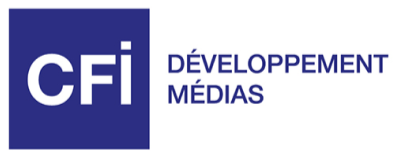Educational objectives
Objective 1: The trainer is able to define Media Literacy.
Objective 2: The trainer has integrated the skills to be acquired by participants.
Objective 3: The trainer has integrated the skills he/she needs to acquire in order to train participants in Media Literacy under the best conditions.
Definition of media literacy
According to the definition established by UNESCO, media literacy aims to make every citizen active, independent, and critical of any media document or device they receive or use. This discipline covers all print, audiovisual, and electronic media, regardless of their technological format (print media, radio, cinema, TV, online media, social networks, digital platforms). It is not limited to any particular media genre and therefore covers the entire spectrum of communications: informative, persuasive, entertaining, or user-friendly.
According to UNESCO, media literacy should enable every citizen to master media languages and learn how to interpret, express themselves, and communicate through the media. In this sense, media literacy prepares individuals to be responsible citizens, capable of contributing to the development of a democratic society.
Thus, it appears that media literacy is closely linked to citizenship education. The media habits of young people—future citizens—largely determine their relationship to society, freedom of expression, and culture. This is why media literacy enables us to question stereotypes, the pitfalls of discourse, prejudices, and the interpretation of messages. Ultimately, the discipline aims to inspire educators and young people to develop the key skills they need to understand contemporary issues and position themselves as active, critical, creative, and supportive citizens.
But it is perhaps the students themselves who best define media literacy. A class participating in an EMI program at the Lycée Pierre de Coubertin in France summarized what they learned as follows: “We live in a society where the echo of the world is instantaneous and often erroneous. Everything moves very quickly, sometimes too quickly. Due to the speed of dissemination on social media, the gap between traditional media and the population is widening. We young people, who are hyper-connected, are generally the first to receive and then relay information. It is therefore up to us to learn how to decode the media and news. It is therefore us who need to be educated about the media.”
Educational objectives of media literacy
The skills young people need to acquire
UNESCO has defined six key skills that every young person should acquire through media education:
- Understanding the work of journalists and how the media works
- Knowing how to access reliable information and identify its sources
- Developing critical thinking skills and the ability to decipher information
- Protecting oneself against fake news, conspiracy theories, and hate speech
- Using digital tools in a sensible and responsible manner
- Understanding social issues in order to make informed democratic choices
Skills to be acquired by trainers
La formation des formateurs à l’éducation aux médias, vise, par conséquent, les objectifs pédagogiques suivants :
- Comprendre comment l’EMI peut permettre aux citoyens de devenir plus actifs, autonomes et critiques vis à vis des médias et aux autres supports de communication auxquels ils sont exposés
- Comprendre comment l’EMI permet de questionner les stéréotypes, les pièges du discours, des préjugés ou l’interprétation des messages.
- Assimiler le fait que l’EMI peut inspirer les jeunes d’horizons divers à saisir les enjeux contemporains et leur permettre de se positionner comme citoyens actifs, critiques, créatifs et solidaires
- Comprendre l’évolution du paysage médiatique, de savoir aborder la question des médias avec les jeunes et savoir sensibiliser à l’usage responsable et éclairé des “nouveaux médias”
- Acquérir les connaissances pédagogiques nécessaires pour pratiquer l’EMI (lignes directrices, concepts clés et évolution de la discipline) en s’adaptant au public jeune en particulier
- Déployer des activités pratiques engageantes spécifiques à l’EMI, afin de faciliter l’acquisition des compétences par les jeunes et le développement d’exercices positifs sur le développement de l’expression citoyenne (campagnes médiatiques en ligne par exemple)


